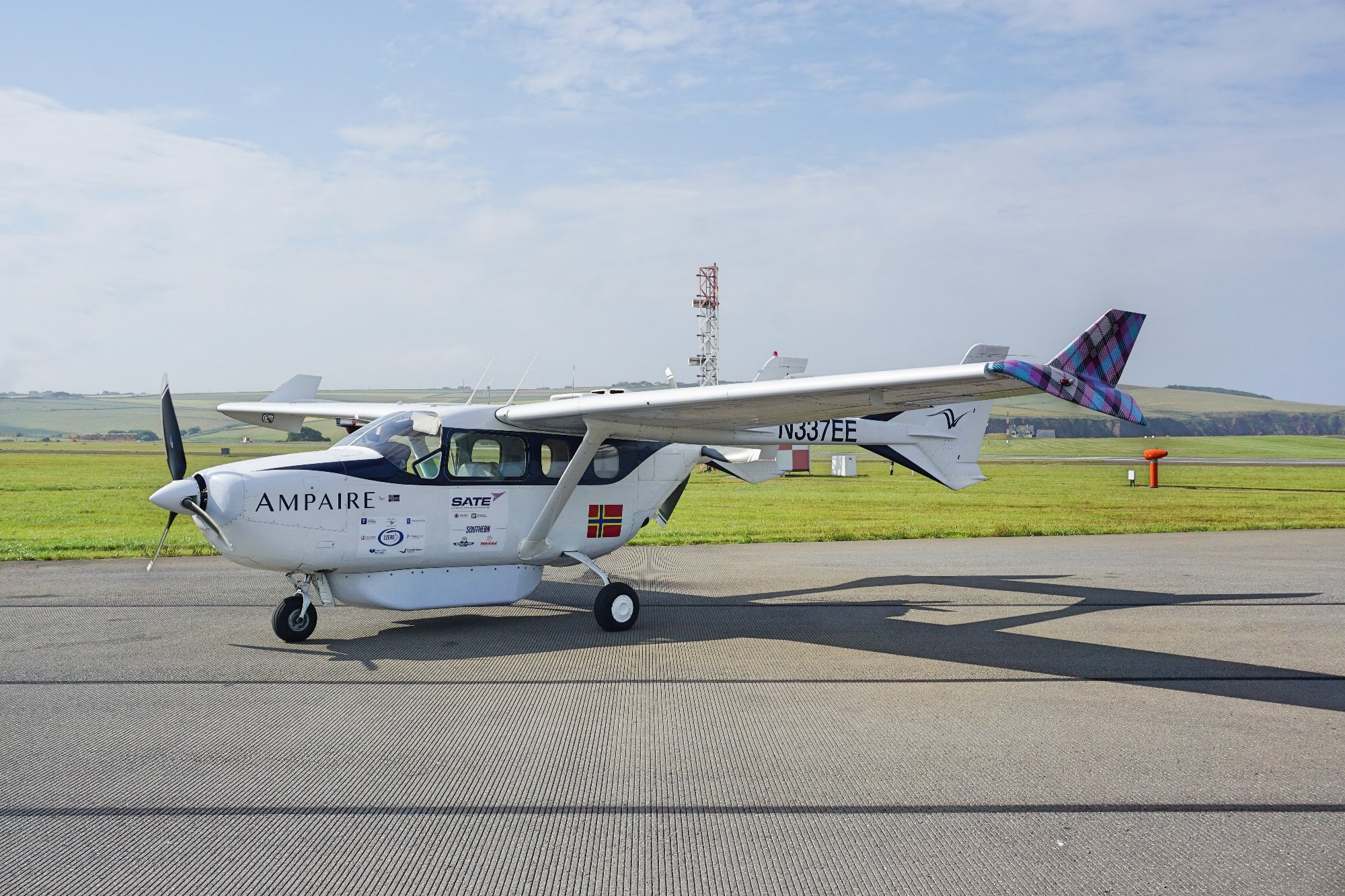Click Here to View This Page on Production Frontend
Click Here to Export Node Content
Click Here to View Printer-Friendly Version (Raw Backend)
Note: front-end display has links to styled print versions.
Content Node ID: 420146
Scottish regional airline Loganair is evaluating options for decarbonizing its fleet with new electric aircraft. The carrier’s head of sustainability, Andy Smith, told the Air Charter Expo (ACE) conference on September 12 that it is evaluating ZeroAvia’s plans to install hydrogen fuel cell propulsion systems on small turboprop aircraft like the Twin Otter, which Loganair already operates.
According to Smith, Loganair is still considering options and has not yet selected any particular aircraft. In 2021, the airline was involved in flight trials in Scotland and other parts of the UK to evaluate Ampaire’s hybrid-electric technology demonstrator.
“What ZeroAvia is doing tends to be more applicable to what we want to do [regarding routes],” Smith stated. “We see the main challenge as economic in that we need to be able to do this in a way that passengers will be offered a viable price point. We need to find the right level of government and private investment support.”
Smith told AIN that the early acquisition costs for the electric aircraft will be relatively high. “We see the first five years in service as critical to making it viable and competitive,” he said, adding that the company expects to achieve significant subsequent savings in fuel and maintenance costs for its planned green fleet.
According to Smith, initially, Loganair would likely favor using gaseous hydrogen fuel since this can be inexpensively and locally produced in small quantities, fitting its network profile, which that includes multiple Scottish islands. However, he feels that as larger aircraft enter service on longer routes, liquefied hydrogen would be a better solution. “Using hydrogen is more cost-effective than sustainable aviation fuel in the longer term,” he commented.
ZeroAvia’s head of external affairs, Dominic Weeks, told ACE delegates the company is on track to get the first hydrogen-powered regional airliners certified and ready to enter commercial service in 2025 on routes such as London to Rotterdam in the Netherlands. He said that later versions of the propulsion system might support flights such as London to Glasgow, Scotland, and beyond that could power larger aircraft capable of carrying 60 passengers up to around 600 miles. The California-based company plans to scale up its propulsion system for aircraft with as many as 80 seats.
